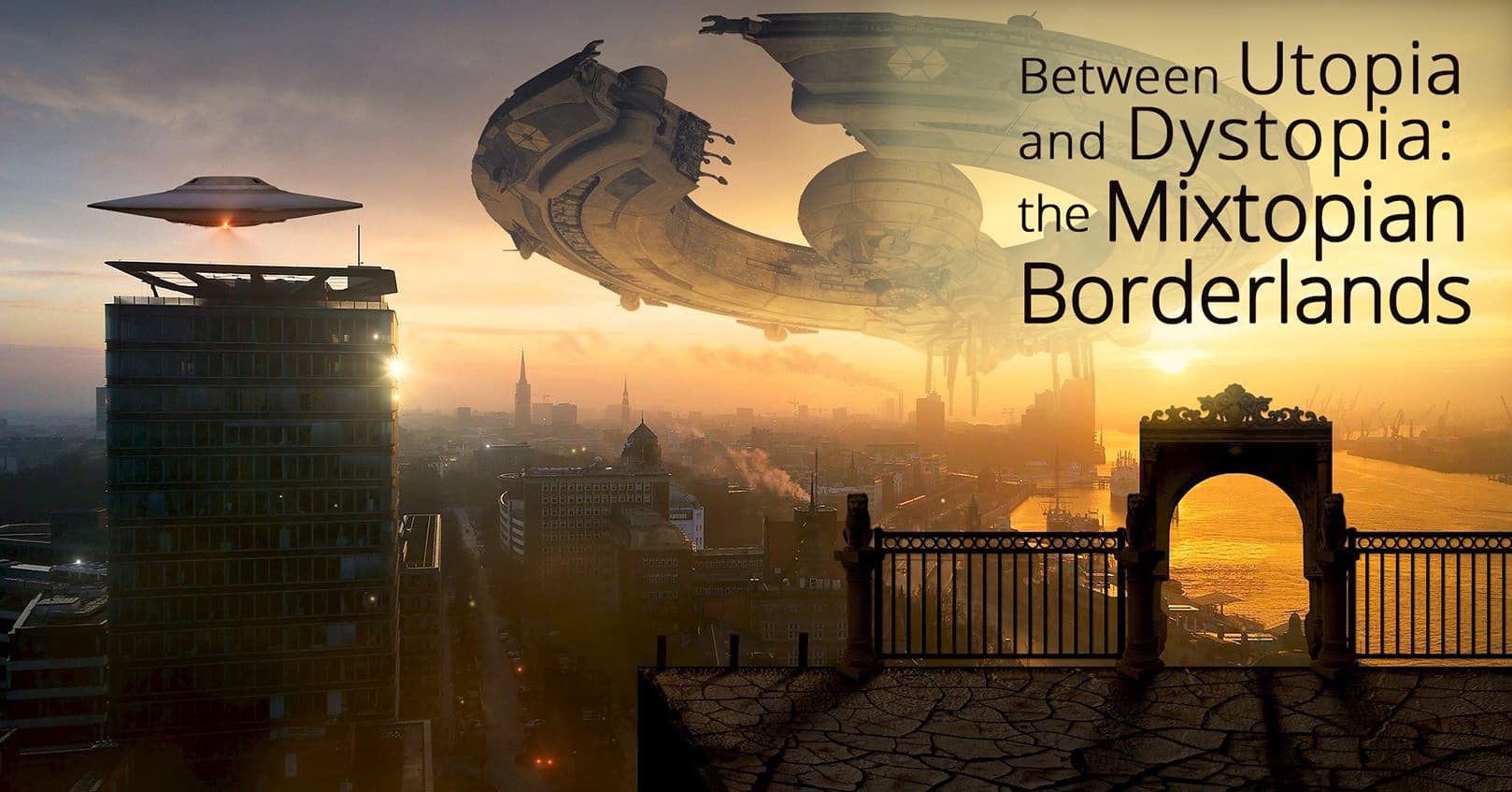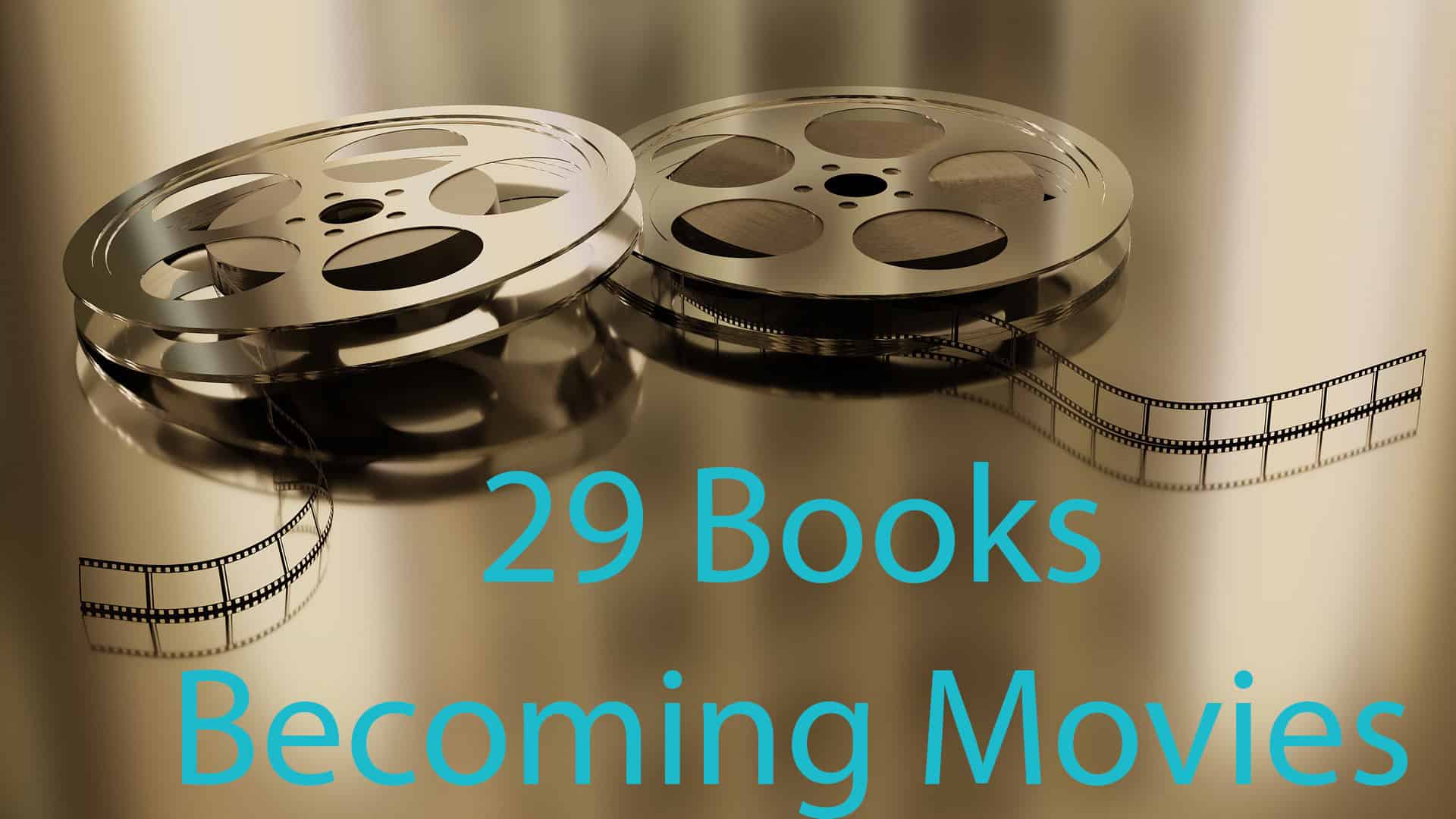
If you’re reaching for a dictionary at the word “mixtopian,” don’t bother: I confess I made it up. I figure it’s one of those terms that should exist but doesn’t. It does, however, beg the question, how does a mixtopia differ from “normal life”?
Is the real world a mixtopia? Twenty years ago I would have said “No,” but in 2020 the answer seems far closer to “Yes.”
So what is a mixtopia?
Imagine we’re standing in a strange place: on one side, the shining cities and lush ecosystems of a Utopia stretches out before us. But turning the other way, we smell ash-filled skies that lour over an arid landscape of bones, where people scratch for survival, overshadowed by towering grey tenements ringed by barbed wire. Are we in Mixtopia?
If all around us there’s a sweeping land where elements of both visions mingle, but which is basically “safe,” I’d say we’re not. But if we’re on a narrower path—like a road of Zelazny’s Amber—weaving between the two places, then we are. Likewise I’d claim we’re in a mixtopia if we stand on a narrow ledge, one climb short of the shining land above, but one misstep from plunging down into ruin. It’s the imminence of those two possibilities, how precariously we’re balanced between the two, that makes a mixtopia. It’s a mixtopia if a single event, or a short series of decisions, could send the story into paradise or disaster.
As examples of mixtopias of the first kind—where the utopian and dystopian elements mix but stay separate—I’d nominate Neal Stephenson’s The Diamond Age. So too most cyberpunk stories, like William Gibson’s Neuromancer. There are far older examples as well, like H. G. Wells’ classic The Time Machine, in which an apparent utopia peels back to reveal a dystopia beneath. Mixtopias where the two elements intermix are less common. I’d offer Blade Runner as an example.
Mixtopias may be more common in science fiction than in fantasy, but I’d argue The Lord of the Rings is mixtopian: idyllic elven and hobbit lands exist alongside Mordor, and the One Ring provides the imminence that could transform the former into the latter.
I’d tend not to classify as mixtopian books in which a utopia is visited and a dystopia is visited, if they stay separate and unmixed; yet I would classify Marge Piercy’s Woman on the Edge of Time as one because the utopia described is connected and under threat (not inevitable).
Utopian fiction’s appeal lies in letting us imagine a future to strive for—or perhaps just from the relief escapism offers. Dystopian fiction’s appeal may be twofold: offering both a warning of paths to avoid, and for people suffering in the here and now, providing catharsis or at least identification.
Of the dystopian books I’ve read, too many could only exist if humanity acted with a level of collective stupidity I find hard to believe. Many others assume a sheepish acceptance of oppression. (Orwell’s 1984, with its focus on the indoctrination needed to manufacture that consent, is an exception.) Consequently, I find most dystopias hard to believe in, and less affecting because of that.
Nowadays, though, it may be even harder to suspend disbelief for utopias, because they bear so little resemblance to present reality. It’s nice to imagine a utopian future, but it seems a long way off. Dystopias, if they became the staple of speculative fiction, might persuade us “this is all you can expect from the future.” It would be beyond tragic if they colored our thinking so we didn’t collectively act to solve our many current problems.
While writing this piece, I stumbled over an article, The Dystopia/Utopia Dichotomy, which points out some shortcomings in both, while expressing a wish for more blended fiction. So maybe I’m not alone in finding mixtopias appealing.
As an author, a mixtopia allows me a richer canvas to work on: it lets me include elements both wonderful and awful in the background, as well as giving me plenty of scope to “up the stakes.” When a fictional world is a blend of good and bad, especially if it’s balanced at a tipping point, the choices and actions of the characters can have epic consequences.
One of the things I like about speculative fiction in general is that it lets us explore possible futures so we can make a conscious choice to aim for the good parts and sidestep the bad. Frankenstein warns us to think before creating technologies we can’t control. Star Trek leads us to boldly imagine a distant future of equality, peace, and plenty.
Perhaps the best reason for reading mixtopian futures, especially in the current world climate, is they feel within reach, and at least hint at ways forward. Such stories encourage us in our everyday struggle—as they do for the characters in them—not just to survive but to try to make the world a better place.

















What an interesting post and person you are.
Uh. I make up words too and even REdefine certain words if I am not content with their official definition. For example. Reiterate. Meaning, “to repeat”. That’s it. Repeat. (zzzz)
I thought it meant, “to repeat something in a different way or with enhancements in order to bring about a greater understanding.” Now honestly, isn’t MY definition better?
Surely there must be some way to get our new words acknowledged and eventually made official. A petition? A vote by The People? A palm greased at the Merriam-Webster conglomerate?
I stand ready to aid you with Mixtopia (which I just added to my personal Grammarly dictionary. )
LL
Luke. I like your coinage as it embraces the possibilities and problems of both genres while acknowledging greater levels of complexity in the relationship. I find ’heterotopia’ is also a useful term to describe building worlds which share some characteristics with our own but also have important points of divergence.
That was a super interesting article. I agree with the premise, but disagree with some of the examples, as a writer of mixtopias myself! Love the idea of somewhere that’s halfway. Have you read the Orange County series by Kim Stanley Robinson? Lots of parallel universe re-runs at how the California coast could turn out, from proper Utopia in one book, through, well, you’ll have to read them!
Best wishes, great article,
Paul
I like the word mixtopian. Keep using is and it will catch on. Isn’t that how a lot of American idioms come to be? I think I understand you’re definition of mixtopian, but if so, then I’m slightly confused because there are tons of books, sci-fi and fantasy, that fit into the category of mixtopian. (Hey, the more I use it, the more I like it!) What about the books (and there are many these days) where people are segregated by a wall or bubble or dome or the sky and live seemingly idyllic lives while outside of those parameters their counterparts suffer from poverty, hunger, health issues or environmental challenges. Wouldn’t these books also fit your definition? In some of the books, one or a few of the characters winds up straddling the line between a dream existence and a nightmare because it is used as punishment or fear to keep the masses in check. The characters are ousted from peace to violence; tech-savy to candlelight and pony-carts; or diseased or non-diseased. The list of circumstances is endless. I’m sure you get what I mean. Wouldn’t this be mixtopian as well by your explanation? If so I think you have a very solid genre or sub-genre.